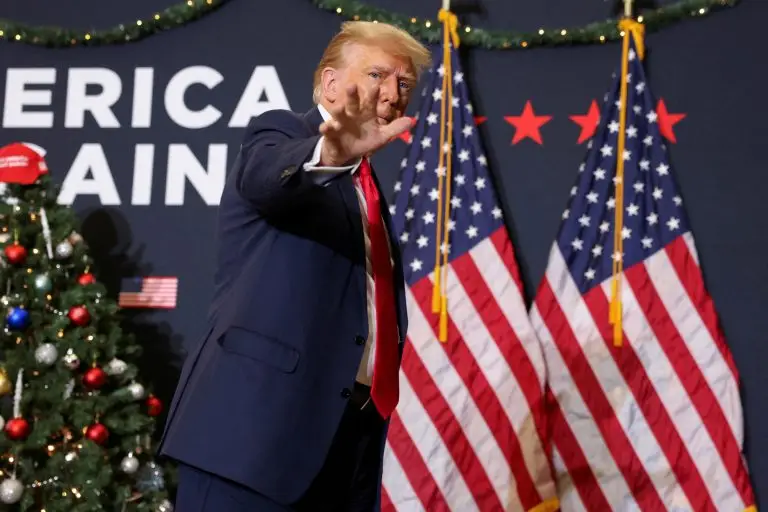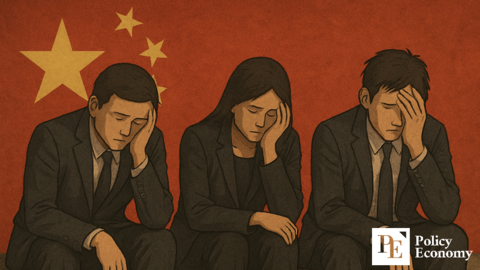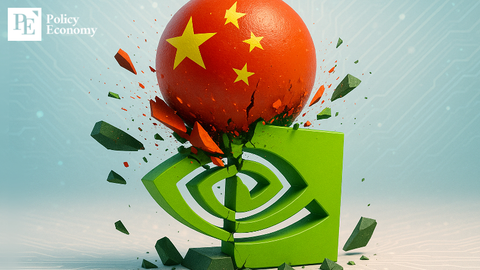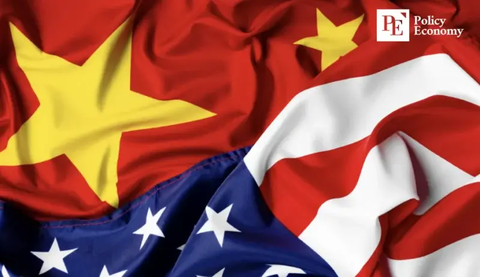[동아시아포럼] 트럼프의 집권 2기 외교정책과 고립주의로의 회귀
입력
수정
2024년 미국 대선에서 트럼프 당선 가능성 높아 트럼프, 재임 때보다 극단적인 의제 추진 가능성 NYT 등 현지 언론, 재집권시 국내·외 혼란 우려
[동아시아포럼]은 EAST ASIA FORUM에서 전하는 동아시아 정책 동향을 담았습니다. EAST ASIA FORUM은 오스트레일리아 국립대학교(Australia National University) 크로퍼드 공공정책대학(Crawford School of Public Policy) 산하의 공공정책과 관련된 정치, 경제, 비즈니스, 법률, 안보, 국제관계에 대한 연구·분석 플랫폼입니다. 저희 폴리시코리아(The Policy Korea)와 영어 원문 공개 조건으로 콘텐츠 제휴가 진행 중입니다.
미국의 대통령 선거가 1년도 남지 않았다. 도널드 트럼프 전 대통령은 금융사기와 관련한 민사 재판 외에도 수십 건의 범죄 혐의로 기소 위기에 처해 있지만, 그럼에도 불구하고 현재로서는 공화당 대선 후보로 나서 3선 연임에 성공할 가능성이 높다. 민주당의 대선 후보로 출마할 예정인 조 바이든 대통령은 집권기간 동안의 경제적 성과를 강조하면서 고령과 공직 적합성에 대한 유권자의 우려를 완화할 수 있을 것으로 기대하고 있다.

내년 美 대선 앞두고 국제 정치 불확실성 최고조에 달해
2024년 대선 캠페인은 국제 정치의 불확실성이 최고조에 달한 시점에서 진행되고 있다. 이스라엘은 하마스의 침공과 테러 행위에 대응해 가자지구에 대한 공격을 이어가고 있으며, 우크라이나도 러시아의 침공에 맞선 무장 저항을 계속하고 있다. 그동안 갈등과 견제를 지속해 온 미국과 중국은 새로운 균형을 모색하기 시작했고 오커스(AUKUS), 쿼드(Quad) 등 새로운 이니셔티브가 등장하면서 인도·태평양 지역의 안보 지형이 변화했다. 특히 미국·영국·호주 3국의 새로운 안보 파트너십인 오커스와 미국·일본·인도·호주 등 4개국이 참여하는 비공식 안보회의체 쿼드를 통해 호주는 인도·태평양 전략의 중심축으로 부상했다.
이런 가운데 현재 미국 내에선 트럼프 전 대통령의 재선 가능성이 매우 높게 점쳐지고 있다. 트럼프는 공화당을 대표하는 얼굴로 현재 여론조사에서 바이든 대통령을 앞서고 있는 것으로 나타났다. 비록 대선 캠페인이 본격적으로 시작되지 않은 상황에서 실시한 여론조사인 만큼 일반적으로 신뢰도가 낮지만 여론조사를 통해 감지할 수 있는 신호마저 무시해서는 안 된다. 트럼프는 형사 사건 중 일부에서라도 유죄 판결을 받을 경우 장기 징역형이 선고될 수 있다는 점을 인식해 현재는 국제 정세보다는 국내 정치에 대한 공세에 집중하고 있지만 그가 재선에 성공한다면 집권 1기와 비교해 훨씬 전략적이고 노련한 모습으로 돌아올 가능성이 크다.
현지 언론들은 트럼프의 재선 행보에 우려를 나타내고 있다. 지난달 15일(현지시간) 미 뉴욕타임스(NYT)는 "재선을 노리는 트럼프 전 대통령이 재임 당시보다 훨씬 극단적인 정책을 추진할 것"이라며 "집권 1기 때보다 극단적인 의제를 구상하고 있다"고 전했다. CNN도 16일 “트럼프의 극단적인 집권 2기 의제가 전례 없는 행정부 권한 행사로 이어질 것”이라고 보도했다. 영국 주간지 이코노미스트 역시 내년 전망을 담은 특별호에서 "2024년, 세계가 직면한 가장 큰 위험은 트럼프"라며 "트럼프는 정치적 보복, 경제적 보호무역주의, 극적이고 과도한 거래들을 거리낌 없이 추진할 것"이라고 전망했다.
당선 가능성 높은 트럼프, 집권 2기에 정치적 보복할 것
트럼프는 자신의 추종자들이 민주당, 진보주의자, 무슬림,이민자는 물론 동맹국들에게 독재적인 방법을 사용할 경우 자신을 기꺼이 지지할 것임을 잘 알고 있다. 집권 1기와 달리 법무부 등 자신의 운명을 좌우할 핵심기관에 결정적인 영향력을 행사할 권한이 있다는 사실 또한 알고 있다. 실제 그는 언론과의 인터뷰에서 전통적으로 당파를 초월해 전문성이 필요한 직책에 자신의 충성스런 지지자들을 임명하겠다고 밝힌 바 있다. 추종자들을 주요 요직에 배치하고 연방정부의 권한을 사용해 정적을 압박하는 전략을 실행하겠다는 것이다.
또한 그는 대통령에 취임하면 법무부 등에 영향력을 행사할 것이란 의지를 선거공약으로 공공연히 밝힌 바 있다. 트럼프는 내년 대선에 출마하는 첫 유세에서 “응징에 나설 것”이라며 "재선에 성공할 경우 법무부를 동원해 정적을 수사하고 기소하도록 할 것"이라고 말했다. 트럼프 측근들도 워터게이트 사건 뒤 정립된 법무부의 수사 자율권을 무력화하기 위한 논리를 개발해 온 것으로 전해졌다. 지난 6월에는 "바이든 대통령 및 가족을 수사하는 제대로 된 특별검사를 임명할 것"이라고 공언했으며 유니비전과 인터뷰에서는 "자신에게 정치적으로 도전하는 누구라도 기소할 것"이라고 강조하기도 했다.
실제 그는 정적을 제거하는 계획을 실행할 조직도 가지고 있다. 트럼프는 재임 시절 막판에 자신의 정책에 반발하는 공직자들을 해고하고 충성파들로 교체했다. 이후 2020년 대선에서 패배해 대통령직에서 물러났을 때는 그의 참모들과 지지자들은 부유한 지지단체들의 지원 아래 보복 대상자 명단을 추리고 법적으로 처벌하는 방안을 강구하기 시작했다. 이에 미국 안팎에서는 트럼프가 지난 2021년 1월 6일 국회의사당 점거 폭동을 통해 외부에서 정권을 되찾는 데 실패한 이후 이제는 행정 권력을 이용해 내부에서 민주주의를 파괴하려 할 것이란 우려가 제기되고 있다.
유럽, 중동, 아시아 지역 외교정책에도 큰 변화 있을 듯
미국은 국제 사회에서 외교·국방·안보를 이끄는 중심국으로 트럼프의 재선은 국경을 넘어 국제사회에 큰 반향을 일으킬 것으로 보인다. 특히 대유럽 외교정책은 트럼프가 재임기간 중 블라디미르 푸틴 러시아 대통령에게 호감을 보이며 친분을 쌓아온 점, 그가 개인의 이익을 위해 우크라이나의 안보에는 중립적인 태도를 취할 가능성, 미 의회의 온건주의자들인 공화당의 쇠퇴 등과 관련해 여러 가지 시나리오가 나오고 있다. 여기에는 미국이 북대서양조약기구(NATO)를 탈퇴하고 우크라이나에 대한 군사 지원을 영구적으로 중단하는 내용도 포함된다. 이제까지 트럼프가 나토와 러시아에 대해 보여준 언동을 볼 때 그가 재집권에 성공할 경우, 유럽에 있는 미국의 동맹국들이 가장 큰 손실을 입을 것을 보인다.
트럼프는 유럽뿐만 아니라 아시아·태평양 지역의 안보 구조를 유지하는 데도 관심이 없다. 다만 이제까지 보여준 반중 감정에 대한 가벼운 수사(rhetoric)와 북한 김정은 위원장에 대한 호기심을 넘어 그가 실제 아시아·태평양 지역을 얼마나 이해하고 있는지는 분명하지 않다. 아시아 국가에 대한 상대적인 무관심은 트럼프 행정부의 집권 2기에 대한 불확실성 그 자체만으로도 인도·태평양 지역의 질서를 위협할 수 있다.
중동 정책에도 변화가 있을 것으로 보인다. 하마스와 푸틴의 새로운 동맹이 미국의 중동 외교를 복잡하게 만들고 있지만 트럼프는 분쟁에 대해 최대주의적 해결책을 추구하는 이스라엘 내 일부 세력들과 손을 잡을 가능성이 높다. 이들이 지향하는 해결책에는 가자지구의 영구적인 재점령, 서안지구 정착민에 대한 폭력적 대응, 팔레스타인 민간인의 대규모 이주, 예루살렘 성지 논란에 대한 종식 등이 포함될 것으로 보인다. 하지만 이러한 대응 기조는 미국의 동맹 관계에 부담을 줄 수 있다. 국제사회는 더 이상 민간인 희생자를 원치 않는 데다 유대인 정착민 운동도 이스라엘 밖에서는 지지를 받고 있지 못하기 때문이다.
인도·태평양 국가, 트럼프 재집권 시 대응전략 마련해야
바이든 대통령은 국제 정세가 혼란스러운 상황에서도 국제사회의 리더로서 미국을 이끌어 왔다. 아프가니스탄 미군 철수와 탈레반의 복귀, 유럽 내 나토 동맹국들의 우려를 불러일으킨 오커스의 출범에도 바이든 대통령은 다자주의적 국제질서와 제도를 존중하고 신뢰해 왔다. 또한 초강대국의 외교 정책에 대한 오류와 편견에도 불구하고 바이든 대통령은 의심할 여지없이 다자주의의 원칙을 이해하고 있으며 가능한 한 그 원칙을 따르고 있다. 이같은 미국의 외교정책은 세계 질서를 구축하는 데 기여했을 뿐만 아니라 호주를 비롯해 아시아·태평양 지역의 주요 동맹국들에도 안정과 안보, 번영을 제공해 왔다.
이에 반해 트럼프는 본질적으로 야당 성향의 인물로, 그의 정치는 종종 반지성적이며 거부주의적(rejectionist)이다. 바이든 대통령이 미국의 리더십, 다자간 협력을 지지한다면 트럼프는 그 반대를 추구할 가능성이 높다. 이는 미국의 동맹국들에게 즉각적으로 나쁜 결과를 초래할 수 있다. 트럼프가 재집권할 경우를 대비해 인도·태평양 지역의 파트너들이 자국 내 안보와 번영을 지키기 위한 대응책을 마련해야 하는 이유다.
원문의 저자는 코넬대학교(Conell University) 교수이자 동남아시아 프로그램의 디렉터인 토마스 페핀스키(Thomas Pepinsky)입니다.

The return of US isolationism
The United States is less than a year away from its next presidential election. Although former president Donald Trump faces numerous civil and criminal indictments, he will most likely be the Republican Party’s nominee for the third election in a row. Incumbent President Joe Biden will run for re-election from the Democratic Party, hoping that the country’s strong economic performance will ease voters’ concerns about his age and fitness for office.

The 2024 presidential election campaign comes at a moment of uncertainty in international politics. The United States and China are searching for a new footing, Israel continues its invasion of Gaza in response to Hamas’s terrorist actions and war crimes and Ukraine continues to mount a successful armed resistance to Russia’s illegal invasion. The Indo-Pacific security architecture is also changing, with new initiatives such as AUKUS and the Quad bringing Australia closer to the United States as a central player in the United States’ Indo-Pacific strategy.
The outlook of a second Trump presidency for US allies in the Asia Pacific is grim. Trump has a serious chance of being re-elected. He is the face of the Republican Party, and current polling shows Trump neck-and-neck with Biden. Although horserace polls this far in advance of the election are notoriously unreliable, the signals they are sending should not be ignored.
Trump’s second term may well be more extreme than his first term. Trump’s central policy concerns are domestic, driven by his belief that he will face a lengthy prison sentence if convicted of even a subset of his crimes. But he also understands that his political supporters would gleefully endorse dictatorial methods if used against Democrats, progressives, Muslims, immigrants, or their allies.
Trump has reportedly pledged to appoint loyal supporters to positions that have traditionally been nonpartisan and professionalised. He allegedly plans to surround himself with sycophants who will implement his most dangerous ideas about how to use federal power to crush his perceived enemies at home.
Unlike during his first term, Trump understands now that his personal fate depends on his ability to act decisively against core US institutions. This is not a secret, this is his campaign platform. He has a political team that will enable him to do this as soon as he takes office. Having failed on 6 January 2021 to overturn American democracy from the outside through seditious conspiracy, he will try to overturn it from the inside, using executive power.
Because the federal government is central to US diplomacy, defence and foreign policy, such actions will reverberate far beyond US borders. Given Trump’s fondness for Russian President Vladimir Putin, his willingness to sacrifice Ukrainian national security for his personal benefit and the decline of the moderate internationalist Republicans in Congress, many options are on the table for US policy in Europe. They include a unilateral withdrawal from NATO and a permanent end to military support for Ukraine. This focus on NATO and Russia means that the United States’ European allies stand to lose the most from Trump’s second presidency.
Trump is similarly uncommitted to maintaining the status quo security architecture in the Asia Pacific. Yet it is not clear how much he understands or cares about the region beyond his casual anti-Chinese rhetoric and curiosity about Kim Jong-un. Trump’s relative indifference to Asia suggests that US allies in the Indo-Pacific may not fare as poorly under a second Trump administration as European allies, but uncertainty itself is a threat to the regional strategic order.
Although the emerging Hamas–Putin partnership complicates Trump’s Middle East policy, Trump will likely align himself with segments of the Israeli society that seek a maximalist solution to the conflict. This solution may include a permanent reoccupation of Gaza, even more settler violence in the West Bank, massive and permanent displacement of Palestinian civilians and a decisive end to the fragile status quo in Jerusalem’s holy sites.
Any one of these outcomes would strain US alliances. There is no appetite for more dead civilians and the settler movement has no durable support outside of Israel.
Biden’s foreign policy leadership has largely been a boon for allies and partners around the world. Despite the Afghanistan withdrawal, the subsequent return of the Taliban and the AUKUS rollout that generated concerns from NATO allies in Europe, Biden believes in multilateral institutions. He understands that the United States has built a global order that provides security and prosperity for Americans. That same order has also provided stability, security and prosperity for key allies in the Asia Pacific like Australia.
Biden has steered the United States through a difficult period in global politics. Despite his errors and inherent biases of superpower diplomacy and foreign policy, Biden undoubtedly understands the principles of multilateralism and follows them when he can.
Because Trump is an inherently oppositional figure, his politics are rejectionist. If Biden supports US leadership, multilateral institutions and foreign policy cooperation, Trump will pursue the opposite. While immediate consequences are likely to be worse for US allies in the North Atlantic, partners in the Indo-Pacific should plan for what a Trump presidency might look like, and how they will respond to safeguard their security and prosperity at home.





















